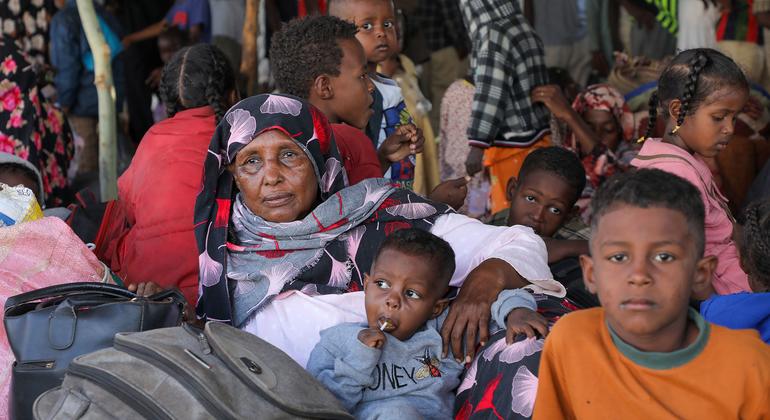The United Nations human rights office, OHCHR, recently released a report detailing the dire humanitarian crisis unfolding in El Fasher, the capital of Sudan’s North Darfur state. The city has been under siege for seven months by fighters from the Rapid Support Forces (RSF), a powerful militia that has been engaged in fierce battles with government forces since April of the previous year. Thousands of civilians are trapped in El Fasher, with at least 782 civilians dead and over 1,143 injured as a result of the ongoing conflict.
UN High Commissioner for Human Rights, Volker Türk, expressed deep concern over the devastating impact of the siege and relentless fighting on the lives of civilians in El Fasher. The report, based on interviews with survivors who fled the city, highlights the widespread use of explosive weapons in populated areas by the RSF and the Sudanese Armed Forces (SAF), as well as their allied militias. These actions raise serious concerns about violations of international humanitarian law, potentially amounting to war crimes.
The report also sheds light on attacks on key civilian infrastructure, including hospitals and camps for internally displaced persons (IDPs). The Al-Saudi Maternity Hospital, the only remaining public hospital in El Fasher providing essential surgical and reproductive health services, has been repeatedly targeted and shelled by the RSF. Similarly, the Tumbasi Medical Centre was attacked in August, resulting in the deaths of 23 people and injuries to 60 more.
Furthermore, the report documents an increase in cases of sexual violence since the siege began, further exacerbating the suffering of vulnerable populations. The Zamzam IDP camp, located south of El Fasher and home to hundreds of thousands of displaced people, has been shelled multiple times by the RSF, resulting in the deaths of at least 15 civilians. UN High Commissioner’s Representative in Sudan, Li Fung, emphasized that these attacks against the civilian population and protected objects, including medical facilities, may constitute war crimes.
The situation in El Fasher remains dire, with the report warning of potential large-scale attacks on Zamzam camp and the city itself. Mr. Türk cautioned that any such attacks would escalate civilian suffering to catastrophic levels. The OHCHR has called on all parties involved, as well as the international community, to engage in mediation efforts and immediately cease hostilities to alleviate the humanitarian crisis in El Fasher.
In a tragic development, the World Food Programme (WFP) mourned the deaths of three staff members in the Blue Nile state who were killed during an aerial bombardment on December 19. WFP Executive Director, Cindy McCain, condemned the attack and called for accountability, stating that any loss of life in humanitarian service is unconscionable.
The ongoing conflict in El Fasher and other parts of Sudan has led to a severe humanitarian crisis, with civilians bearing the brunt of the violence and facing immense challenges accessing essential services and resources. The international community must prioritize efforts to end the conflict, protect civilians, and support humanitarian organizations working tirelessly to assist those in need. Only through collective action and a commitment to peace and justice can the people of Sudan hope to rebuild their lives and communities in the aftermath of this devastating crisis.









